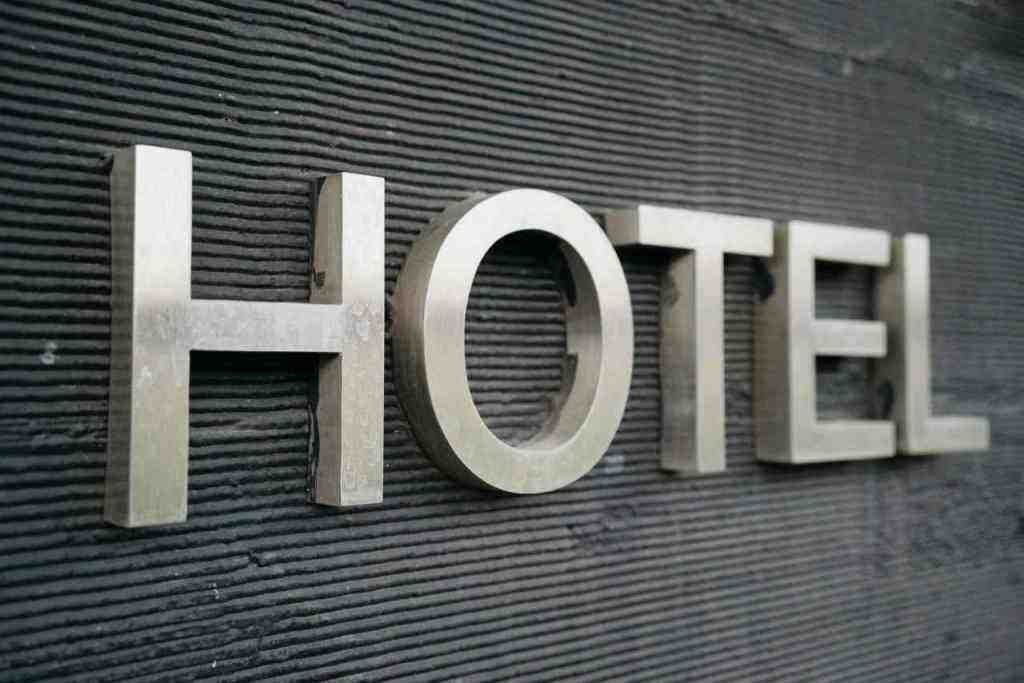Unlock Direct Bookings: Your 2025 Guide to Hospitality SEO Mastery

In the ever-evolving digital landscape of 2025, the hospitality industry faces a constant battle for visibility and direct bookings. Online Travel Agencies (OTAs) continue to take a significant bite out of revenue, making it more crucial than ever for hotels and accommodations to optimize their online presence. This isn’t just about appearing in search results; it’s about strategically capturing the attention of travelers actively seeking your services and guiding them directly to your booking engine. Search Engine Optimization (SEO) remains the cornerstone of this strategy, but it’s a dynamic field that demands continuous adaptation. This guide will walk you through the essential SEO strategies for 2025, helping you navigate the complexities and ultimately drive more direct bookings.
The Direct Booking Advantage: Why It Matters More Than Ever
Let’s be honest, those OTA commissions add up. By focusing on direct bookings, hotels can significantly improve their profit margins, foster stronger customer relationships, and gain valuable insights into guest preferences. This direct connection allows for personalized marketing, loyalty programs, and a more consistent brand experience. In 2025, with travelers increasingly seeking authentic experiences and direct communication, maximizing direct bookings isn’t just a goal; it’s a necessity for sustained growth and profitability. By optimizing your website and online presence, you’re not just attracting visitors; you’re building a loyal customer base.
The Strategic Imperative of SEO in Today’s Hospitality Market
Think of SEO as your hotel’s digital storefront. In 2025, where over 50% of website traffic originates from organic search, a strong SEO strategy is non-negotiable. Appearing prominently in search engine results pages (SERPs) when potential guests are actively looking for accommodation is the first step to securing a booking. Neglecting SEO is akin to leaving your doors metaphorically closed to a vast number of potential guests, ceding valuable ground to competitors who are actively investing in their online visibility.
Deconstructing Success: A Hypothetical Hotel’s SEO Journey
To illustrate the power of a strategic SEO approach, let’s follow the journey of “The Azure Haven,” a charming boutique hotel that was heavily reliant on OTAs. They recognized the need to shift their focus towards driving direct bookings. Their transformation involved a multi-phased approach, starting with a comprehensive audit and evolving through continuous optimization.
Phase One: Laying the Groundwork – Audit and Keyword Research
Every successful SEO strategy begins with a solid foundation. For The Azure Haven, this meant a deep dive into their existing online presence.
Comprehensive Website Audit
The first step was a thorough website audit. This involved assessing critical technical aspects like site speed, mobile-friendliness, and identifying any technical errors that could hinder performance. A slow or poorly functioning website is a major deterrent for potential guests, regardless of search engine rankings. Ensuring a fast, intuitive, and accessible website is paramount for a positive user experience.
In-depth Keyword Analysis
Understanding what potential guests are searching for is crucial. The Azure Haven conducted in-depth keyword research to identify relevant terms, focusing on user intent and search volume. This included long-tail keywords – more specific phrases that often indicate higher purchase intent – which are vital for attracting qualified leads.
Competitor SEO Benchmarking
Analyzing competitor strategies provided valuable insights into what was working in their market. The Azure Haven looked at their competitors’ keyword rankings, backlink profiles, and content strategies to identify opportunities and potential challenges.
Content Gap Identification. Find out more about hospitality SEO direct bookings.
An audit also revealed areas where the website’s content was lacking. Identifying topics and information that potential guests might be searching for but weren’t adequately addressed on The Azure Haven’s site allowed them to create targeted content to fill these gaps.
Phase Two: Enhancing Visibility – On-Page Optimization
With a clear understanding of their digital landscape, The Azure Haven focused on optimizing their website content and structure.
Optimizing Website Content
Existing website copy was refined to naturally incorporate target keywords. Room descriptions, amenity details, and service information were rewritten to be both informative for users and appealing to search engines, ensuring a balance between keyword richness and engaging readability.
Meta Title and Description Crafting
Each page’s meta title and description were meticulously crafted to be compelling, keyword-relevant, and enticing. These elements are the first impression users get in search results, so they need to accurately reflect the page’s content and encourage clicks.
Header Tag Structure Implementation
Proper use of header tags (H1, H2, H3, etc.) was implemented to create a clear hierarchy of information on each page. This helps search engines understand the structure and main topics of the content, improving its readability and SEO value.
Image Optimization and Alt Text
Images were optimized for faster loading times, and descriptive alt text was added to each image. Alt text not only helps visually impaired users but also provides search engines with context about the image’s content, further enhancing discoverability.
Internal Linking Strategy Development
A strategic internal linking structure was developed to guide users and search engine crawlers through the website. Linking relevant pages together helps distribute “link equity” and improves the overall navigability and authority of the site.
Phase Three: Building Authority – Off-Page SEO and Reputation Management. Find out more about increase hotel direct bookings guide.
Visibility isn’t just about what’s on your website; it’s also about what others say about you and how your brand is perceived online.
Building High-Quality Backlinks
Acquiring backlinks from reputable and relevant websites is a cornerstone of off-page SEO. The Azure Haven engaged in outreach to travel bloggers, local directories, and industry publications to earn valuable links, focusing on quality over quantity.
Local SEO and Google My Business Optimization
For a hospitality business, local SEO is paramount. The Azure Haven optimized its Google My Business profile, ensuring accurate business information, high-quality photos, and actively encouraging customer reviews. This is crucial for appearing in local search results and on Google Maps.
Social Media Integration and Engagement
While not a direct ranking factor, social media engagement can indirectly boost SEO by driving traffic and increasing brand awareness. The Azure Haven actively shared its content on social media platforms, encouraging engagement and directing traffic back to its website.
Online Reputation Management
Monitoring and responding to online reviews across various platforms was an integral part of the strategy. Positive reviews can influence booking decisions and signal to search engines that the business is reputable and well-regarded.
Phase Four: Technical SEO Enhancements for a Seamless Experience
Technical SEO ensures your website is easily crawlable by search engines and provides an excellent user experience.
Improving Website Speed and Performance
Website loading speed is a critical ranking factor and a key element of user experience. The Azure Haven implemented techniques like image compression and browser caching to significantly improve its website’s performance.
Ensuring Mobile-Friendliness. Find out more about boutique hotel SEO strategy tips.
With the majority of online searches occurring on mobile devices, a mobile-responsive website is non-negotiable. The Azure Haven ensured its website provided a seamless experience across all devices.
Schema Markup Implementation
Schema markup, a form of microdata, was implemented to help search engines better understand the content on the website, such as hotel amenities, pricing, and availability. This can lead to rich snippets in search results, increasing click-through rates.
HTTPS Security Protocol Adoption
Ensuring the website uses HTTPS provides a secure connection for users, which is also a minor ranking factor. The Azure Haven migrated its website to HTTPS to enhance security and build user trust.
Phase Five: Engaging Content and User Experience
Content is king, and in 2025, it needs to be engaging, informative, and tailored to the user’s journey.
Developing a Comprehensive Content Strategy
Beyond basic website copy, The Azure Haven developed a content marketing strategy focused on creating valuable and engaging content. This included blog posts about local attractions, travel tips, and hotel experiences, all designed to attract and inform potential guests.
Creating Engaging Blog Content
The hotel’s blog became a hub for valuable information related to travel and the local area. By consistently publishing high-quality, informative articles, The Azure Haven aimed to attract organic traffic and establish itself as an authority in its niche.
Leveraging Visual Content and AI
High-quality photography, videography, and even AI-generated content were used to showcase the hotel’s amenities, rooms, and unique selling propositions. Visual content is highly engaging and can significantly influence booking decisions, while AI can help personalize content delivery.
Encouraging User-Generated Content. Find out more about guest booking journey optimization strategies.
The hotel encouraged guests to share their experiences online through reviews and social media posts. User-generated content acts as powerful social proof and can significantly enhance a hotel’s online reputation.
Phase Six: Measuring Success and Continuous Improvement
SEO is not a set-it-and-forget-it strategy. Continuous monitoring and adaptation are key.
Key Performance Indicator (KPI) Tracking
The Azure Haven established key performance indicators (KPIs) to measure the success of its SEO efforts. These included metrics such as organic traffic, keyword rankings, conversion rates, and direct booking revenue.
Utilizing Analytics Tools
Tools like Google Analytics and Google Search Console were used to monitor website performance, track user behavior, and identify areas for further optimization. Regular analysis of these tools provided actionable insights.
A/B Testing and Conversion Rate Optimization (CRO)
A/B testing was employed to experiment with different website elements, such as call-to-action buttons and page layouts, to identify what resonated best with users and improved conversion rates.
Adapting to Algorithm Updates and AI Advancements
The SEO landscape is constantly evolving due to search engine algorithm updates and the rise of AI. The Azure Haven remained vigilant, staying informed about these changes and adapting its strategies accordingly to maintain and improve its search rankings.
Results and Future Outlook: The Direct Booking Revolution
The strategic SEO optimization efforts implemented by The Azure Haven yielded significant positive results. The hotel witnessed a substantial increase in organic website traffic, a notable improvement in keyword rankings for relevant search terms, and, most importantly, a marked increase in direct bookings. This shift reduced their reliance on OTAs, leading to improved profitability and a stronger direct relationship with their guests. The future of hospitality SEO lies in a holistic approach that integrates technical excellence, compelling content, and a deep understanding of user intent, all aimed at delivering an exceptional online and offline guest experience. The ability to adapt to new technologies, embrace AI, and prioritize user experience will be critical for sustained growth in the competitive hospitality market. Are you ready to transform your hotel’s online presence and drive more direct bookings? Start implementing these 2025 SEO strategies today and watch your business thrive!
